Let's Play! Simulated Physics for Games
Modeling and Simulation are two components which are closely related to numerical simulations. While accurate modeling is required for an appropriate representation of the reality being described, simulation utilizes the developed models to allow predictions as it is the case for weather forecasting, to give a deeper understanding of the combustion process in engines or to simulate circumstances which cannot be tested in reality, e.g. dark holes.
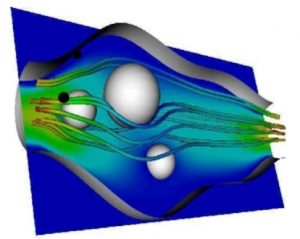
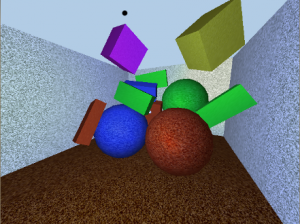
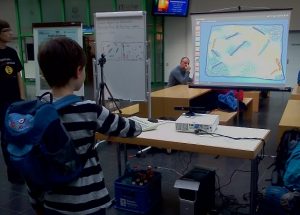
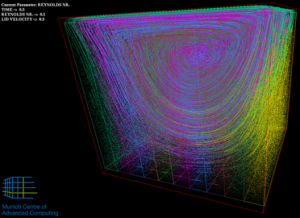
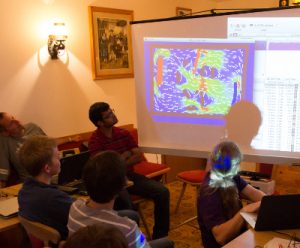
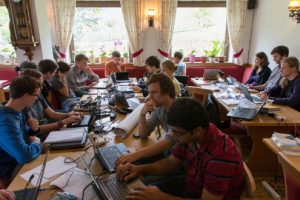
The process of numerical simulation is highly interdisciplinary, since it is necessary to find a mathematical model of the actual real-life system, to discretize this model, to run it on a computer, and then to transfer the results back to the real life. Thus, the intention of this course is to bring students together from different scientific fields such as mathematics, computer science, physics, chemistry and engineering—and of course, in particular from computational or simulation technology programs. So you should be willing to cooperate with people from other fields of research, to discuss their ideas and to present a topic from your field in a talk by your own.
Following the success of previous runs, we will again reduce the individual presentations and work on a project in the seminar which consists of implementing the presented ideas.
The idea for the project of this year is the development of an interactive fluid-structure-interaction game (but there is flexibility to adapt to the background and preferences of the participants)
- The drawings of the player (probably a professor) are analyzed online and lead to an interactive modification of a fluid simulation.
- Rigid bodies are influenced by the fluid simulation and have to move to a particular goal to get more points.
- It's the players task to modify the fluid simulation in such a way (e.g. by inserting new static boundaries), that as many rigid bodies as possible are moved to the goal.
As in the last years the course language is something similar to English—so don't worry if your English is not perfect, you won't be alone!
The course is open for early Bachelor's up to advanced Master's students.
